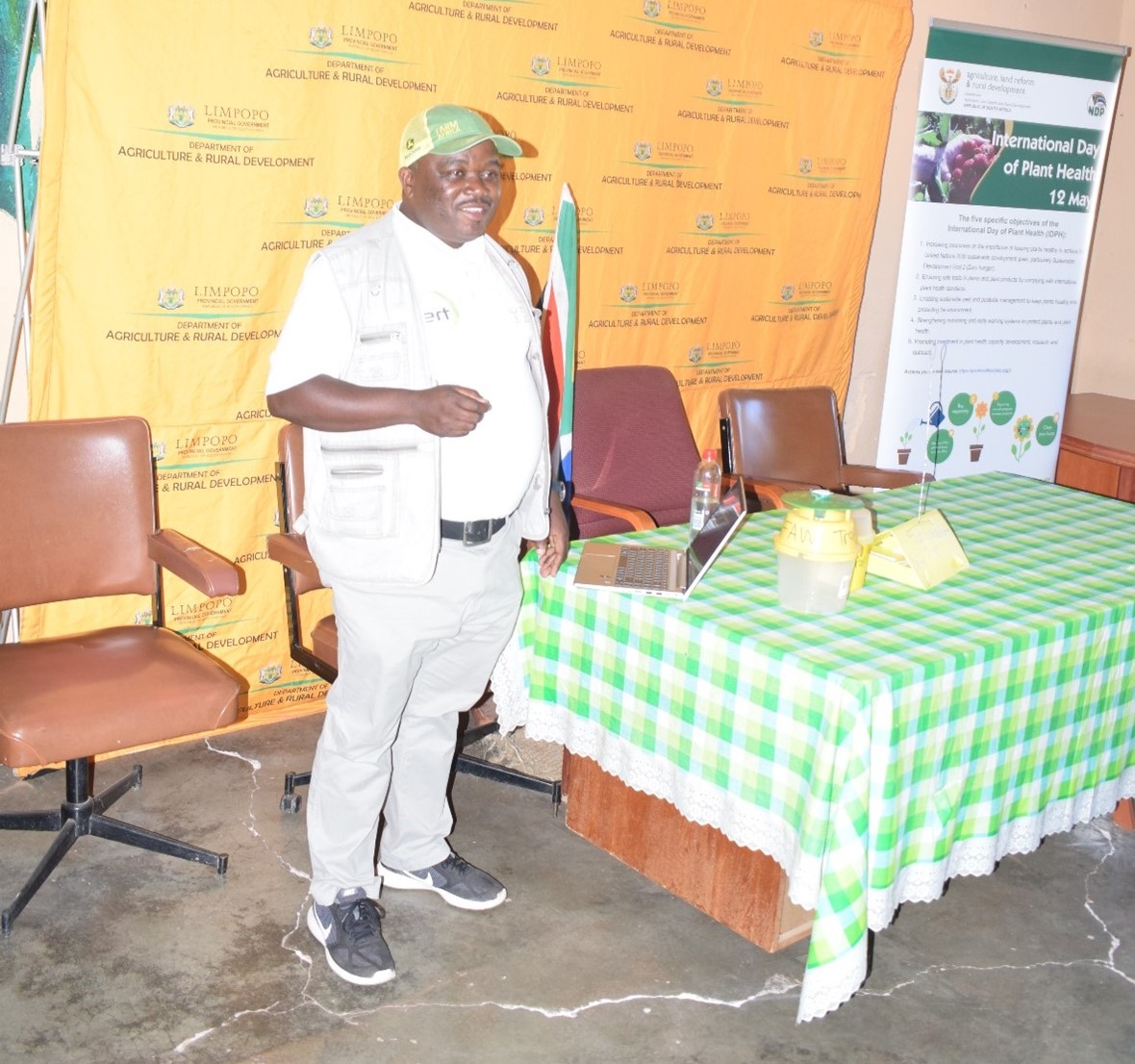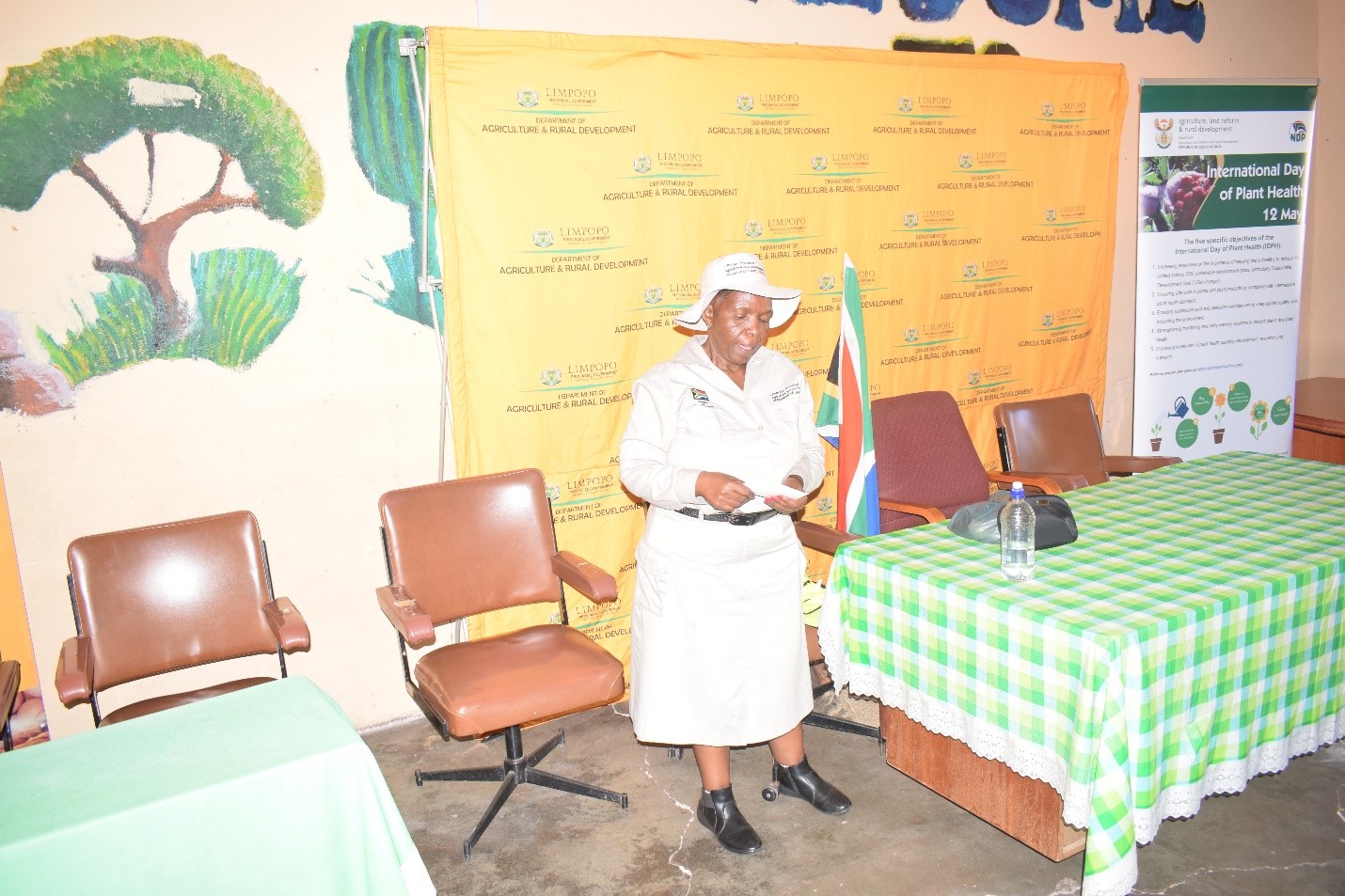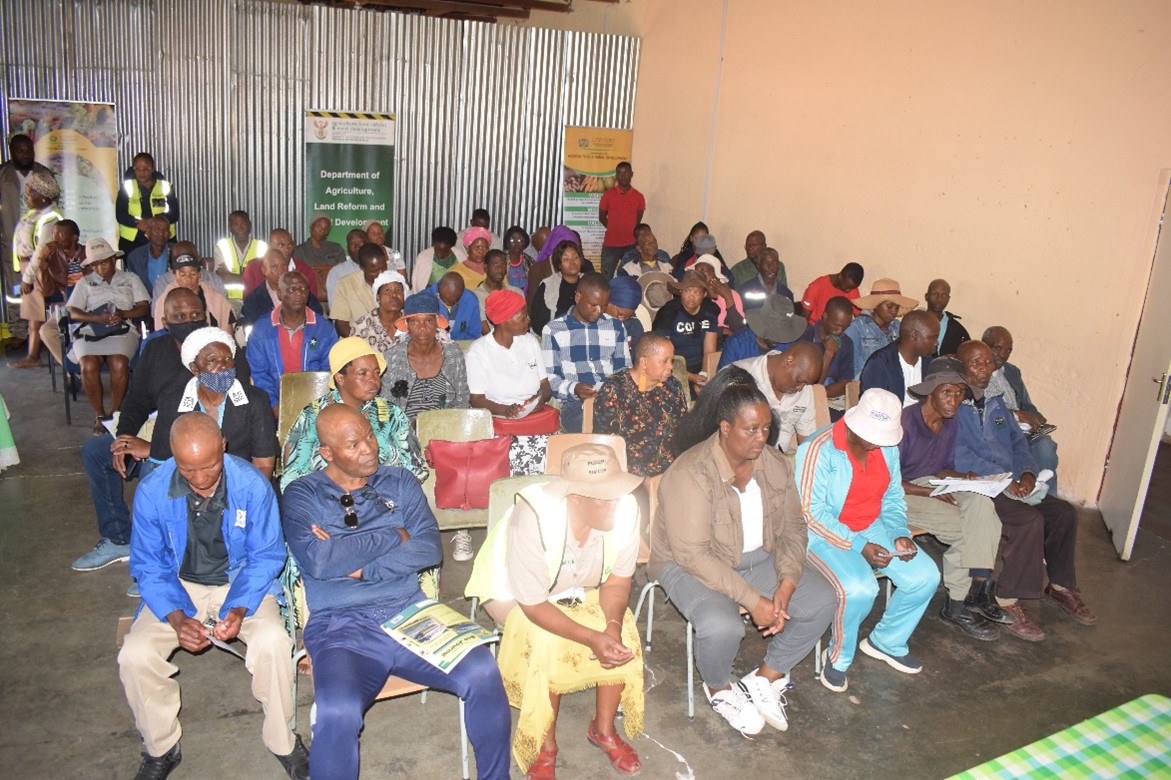By Mpho Sekgala, Matsobane Manaka and Zwi Maphiri

The health and the protection of plants are under threat unless drastic measures are to be taken urgently to protect the species.
Approximately 40 per cent of food crops are lost annually across the globe due exotic pests and diseases such as oriental fruit fly, Fall Army Worm, Tomato Leaf Miner (Tuta Absoluta), banana bunchy top virus, maize lethal necrosis disease (not present in SA yet), and panana disease (not present in SA yet). Humans, international travelers traveling with unauthorized material that may serve as carrier for pests and diseases are among contributing threats to biosecurity, agricultural production, food security and market access.
Looking after the plants can go a long way to increasing food security. The Department of Agriculture, Land Reform & Rural Development (DALRRD) in collaboration with the Limpopo Department of Agriculture and Rural Development (LDARD), Agricultural Research Council (ARC), Crop Life, farmers and the community come together to celebrate the International Day of Plant Health (IDPH) at Setumong, Ga-Matlala village.
The celebration sought to raise global awareness of how protecting plant health can help to reduce poverty thereby ending hunger, boosting economic development and protect the environment.

Agriculture advisor Johanna Mokobodi directs the program.
Plants provide food and oxygen to humans therefore protection of plants is everybody’s responsibility. However, protection of plants requires certain practices that can be deployed to manage exotic pests like fall armyworm, oriental fruit fly, tomato leaf miner and other domestic pests affecting crop yield and alien plant species affecting the grazelands. Avoid illegal importation of plants and plant products, refrain from moving plants material from infested areas to non-infested areas without removal permit.
“The benefits from plants to human cannot be over emphasized thus we owe it to ourselves, future generations and the environment to safeguard plants from all a diversity of risks ranging from pests, diseases, fires, alien plants, injudicious use of agrochemicals and depletion by humans”, said Mpho Sekgala: Deputy Director, Biosecurity, Promotion and Awareness, DALRRD.

Protection of plants starts with farmers and communities were fortunate to become participants in this year’s celebration.
The year 2020 was the international year of plant health and in the same year on 01 October, the Food and Agriculture Organisation (FAO) of the United Nations Committee on agriculture endorsed the proposal tabled by the government of Zambia to proclaim 12 May as the International Day of Plant Health (IDPH). On 29 March 2022, the United Nations General Assembly adopted the resolution proclaiming 12 May as the annual International Day of Plant Health. From here onwards, the celebration will be held annually across the globe.
The celebration goes hand in glove with the acknowledgement of the Support towards the operationalisation of the SADC Regional Agricultural (STORSAR) policy project to intensify the management of transboundary pests and diseases as part of deepening the implementation of the SADC Regional Agricultural Policy.

Several activities including fun walks were demonstrated as part of the celebrations.


